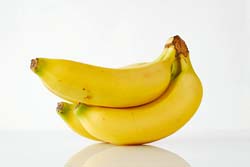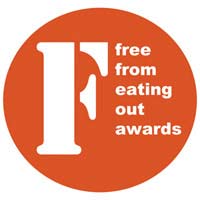Is your tongue sore? Have you got sores around your mouth?
Inflammation of the tongue and sores around your mouth (especially in the corners) may be a sign of chronic Vitamin B6 deficiency – as can anaemia, pins-and-needles or numbness in hands or feet, dermatitis, depression, confusion and even convulsions.

Why do I need vitamin B6?
B6 is essential for the production of haemoglobin, and for the nervous system and immune system. It also helps maintain your blood sugar levels within a normal range. It is important in preparation for pregnancy, and rumour says that it can help with PMT, too. Vitamin B6 deficiencies have also been linked to heart disease and cancers of the breast, uterus and prostate.
So it is an important vitamin!
Severe deficiency is rare, though you might be deficient in B6 if you have undiagnosed coeliac disease, or malabsorption for other reasons. Even just a poor quality diet can lead to deficiency. People who drink too much alcohol may be deficient, because alcohol promotes the loss of B6 from the body. Women taking the contraceptive pill tend to have a low level of B6 too.
Note that if you are diagnosed with celiac disease, and maintain a strict gluten free diet, you may be low in other vitamins, but you are less likely to be low in B6 – as long as you maintain a healthy diet. A recent study showed that coeliacs are more likely to have poor vitamin levels than the rest of the population – but not of B6 – even after 10 years on a gluten free diet. Do you suppose celiacs eat more bananas – the gluten free snack that comes in its own packaging?
More than one million people take B6 here in the UK to fight stress and increase energy, and it is used in conjunction with magnesium to treat autism. Other suggested reasons to maintain a good level of B6 are: a family history of heart disease; nausea in pregnancy; to try to prevent osteoporosis; if you have sustained serious burns; depression; PMS; diabetes; HIV; ADHD; rheumatoid arthritis.
How much do I need?
Children
- Under 6 months: 0.1 mg
- Infants 7 months to 1 year: 0.3 mg
- 1 to 3 years: 0.5 mg
- 4 to 8 years: 0.6 mg
- 9 to 13 years: 1 mg
- Males 14 to 18 years: 1.3 mg
- Females 14 to 18 years: 1.2 mg
Adult
- 19 to 50 years: 1.3 mg
- Men over 50: 1.7 mg
- Women over 50: 1.5 mg
- In pregnancy: 1.9 mg
- When breastfeeding: 2.0 mg
Note that this is the recommended daily dose. The dose given for autism is significantly higher than this, as it is for other treatments – ask your doctor for advice. Note, too, that there can be a clash with other medicines, for example, B6 reduces the effectiveness of Levodopa, used to treat Parkinson’s disease, so if you are taking medicines, and decide to increase your B6 with a supplement, do check that they don’t counteract each other.
Where can I get it?
You can buy a supplement, but why not just check that you eat the right variety of foods?
This important vitamin is found in most food, but especially in poultry, fish and pork, whole grains (this includes brown rice, which is good if you’re coeliac and can’t eat other grains), bananas and avocados, carrots, seeds, pulses and nuts. Examples of good sources of B6 include:
- Fortified cereals (not likely to be OK for coeliacs) – could be up to 100% of RDA (recommended daily allowance)
- Baked potato (but you must eat the skin as well) – 34% RDA
- Garbanzo beans (1/2 can) – 30% RDA
- Chicken breast – 25% RDA
- Oatmeal (only if you are OK with oats, and only if they are non-contaminated with gluten) – 20% RDA
- Pork loin (3 oz) – 15% RDA
- Sunflower seeds (1 oz) – 10% RDA
- Salmon (3 oz) – 10% RDA
- Tuna (tinned, 3 oz) – 10% RDA
- Peanut butter (2 tablespoons) – 8% RDA
You can see that a normal gluten free diet could easily contain enough B6 to keep your levels up. Tuna and bean salad with a baked potato? You’re nearly there …
 |
I’ve written a book summarising what we’ve learnt over 20 years of dealing with the gluten free diet, and it might be just what you’re looking for. It packs the lessons we’ve learned into what I hope is a helpful and straightforward guidebook. It’s available on Amazon, as a paperback or for your Kindle… |



Lucy, Vitamins are so important. When I was diagnosed my doctor just stared at me for a few minutes. She said I was one of the most nutritionally unstable people she had ever seen sitting up. Now because I’ve also had a gastric bypass since my diagnosis (my surgeon’s only celiac)I take LOTS of vitamins, and in unusual ways.
I take double multivitamins every day, with extra iron in them. I take a B-complex but liquid and sublinqual because my intestines no longer have the portion that absorbs b12, or at least it’s not longer a part that routes food. I take cod liver oil for the A&D it contains, I need extra of that. Then to top it all off I have to be sure I’m getting lots of cheese and milk or I have to take a calcium supplement. YUCK, I hate those. I take vitamin C also because of a medication I take for migraines…it helps with the side effects.
Before my Celiac dx and my surgery I was taking over 15 medications every day and on heavy duty pain drugs. Now, I take 3 and LOTS of vitamins. I’m very happy with the trade off.
Laney
Laney, you must have been so poorly! I’m very pleased that you’re off the pain meds, because that must mean you’re loads better
I didn’t realise that there was a particular area of the intestine that absorbed particular vitamins – that’s really interesting. Do you have to have regular blood tests to be sure you’re getting the right proportion of vitamins, or can you tell by the way you feel?
Lucy,
I have to have regular blood tests to confirm that I am getting all the vitamins that I need. This is both as a celiac and as a gastric bypass patient. So about every 3-6 months I have blood drawn to test my vitamin and mineral levels. It was very interesting to find out that there are certain parts of your body that absorb vitamins and minerals etc.
I’d imagine that when we are at our most damaged no amount of pill taking will help us out. I also learned that you must not take your calcium and iron at the same time as one prevents the absorption of the other. So no iron and calcium within 2 hrs of each other.
Laney
I wonder if I am deficient in B6 or am I taking too much. I take one vitamin B complex tablet a day, but since I have been going through the menopause (a very late one age 57) I have suffered from a burning mouth, especially my tongue. Sometimes my gums feel hot and burny and inside my cheeks but usually my tongue only. I also get sore patches (red looking, almost as if top layer of tongue has come off) and then after 2-5 days it looks ok, then it all starts up again. My dr. thinks i am a hypachondriac, i am sure, but it is such a unpleasant sensation and I cant pin it down to one particular food, everything seems to annoy it. I do produce a lot of acid in my stomach and take an omeprazole(antacid tablet) each day, but i dont get heartburn or indigestion often. sometimes a hot feeling but that is all. could it be because of excess acid? I just dont know. Can too much vit b give you a sore tongue? LINDSAY
Hello Lindsay – this does sound unpleasant!
It could be a deficiency, though it sounds like you’re getting plenty of B vitamins. Perhaps you’re anaemic? Have you seen this information here, about menopause and sore tongue? http://www.34-menopause-symptoms.com/burning-tongue.htm explains possible causes and treatments for sore tongue (not all related to menopause). (Note that this site is advertising a supplement which I know nothing about, and don’t endorse, so – like all internet information – treat with caution).
There’s more information here, about ‘geographic tongue’: http://www.netdoctor.co.uk/ate/oralhealth/207722.html
And if that doesn’t help, then I think you should go back to the doctor. Or could you see a different one?
what if you eat just a plain peeled raw potato? would that source work?
Hi Savannah … raw potato? It doesn’t sound that nice to me, though I know there are people who do like to eat raw potato! I don’t know the answer, but I think that the best source of vitamins in potatoes are in (or very near) the skin, so peeling the potato might remove the best part…
Does anyone else know?
Vitamin B6 is vital to normal body function as it is involved in starting reactions involving substances called amino acids. It is a real team player as well. When processed in combination with vitamin B12 and folic acid, B6 can help prevent and fight heart disease as it can help to process homocysteine, a substance often associated with various cardiovascular problems.
http://www.testcountry.org/vitamin-b6-deficiency.htm#ixzz0fgEWBb5j